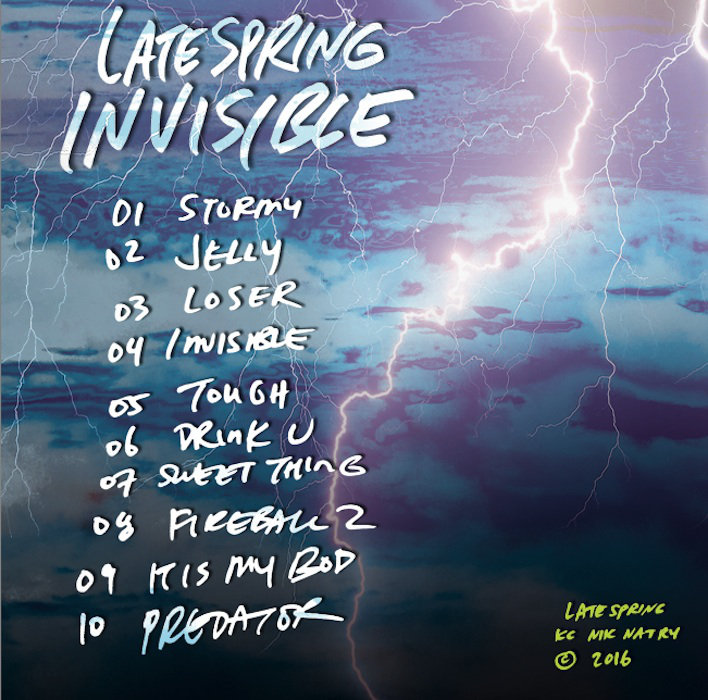Genre is a cruel mistress, one that provides a form for expression but not necessarily the tools. Shoegaze exemplifies this fact. Bands often rely upon a veneer of reverb and distortion to hide a lack of ingenuity. Songwriting falls to the wayside. And creative influences are worn all too visibly. My Bloody Valentine’s Loveless, Ride’s Nowhere and Slowdive’s Just for a Day still guide and define the genre. This influence is seen in the works of those like Whirr, whose 2012 release, Distressor, approached the genre with a deep lethargy. The method is simple: turn up the volume and hope nobody notices a grotesque act of creative regurgitation.
On Invisible, however, Late Spring distinguishes themselves. Beneath the distortion of Invisible lies dynamic and original songwriting ability. They prove that not all shoegaze is created equal. Tracks like “Storm” and “Drink U” come laden with immediate hooks. This catchiness arises from the vocal work of KC Wei and the angular guitar playing of Nik Gauer. Often, the two connect with startlingly intimacy. As Wei’s voice arches into the non-verbal bridge of “Drink U,” for instance, an equally primitive riff responds, one that thuds and shudders and playfully threatens to derail the song. It is a conversational moment: a candid expression of emotion. Like the 1949 Ozu film from which they derive their name, it is clear that Late Spring commits to raw sentiment.
Yet, at other times, Late Spring remains subject to the yoke of their predecessors. On tracks like, “Sweet Thing,” Wei seems to have internalized the muted moan of My Bloody Valentine’s Bilinda Butcher. Similarly, the guitar work of Ride’s Andy Bell and Mark Gardener inform the song “Invisible.”
By no means are these comments belittling the accomplishments of Late Spring. Rather, these moments of genre-cliché are only noticeable because Invisible, as a whole, operates with its own assertive voice. Wei tends to steer clear of the wistfulness of many shoegaze vocalists. For example, her performance on “Loser” is laced with a refreshing commitment to lyrical and vocal minimalism. And the riff work on tracks like “Fireball 2” and “Predator,” avoid any sort of late-album malaise. Over the course of Invisible, one thing is clear. The ghostly specters of influences are diminishing. Late Spring is in blossom.


